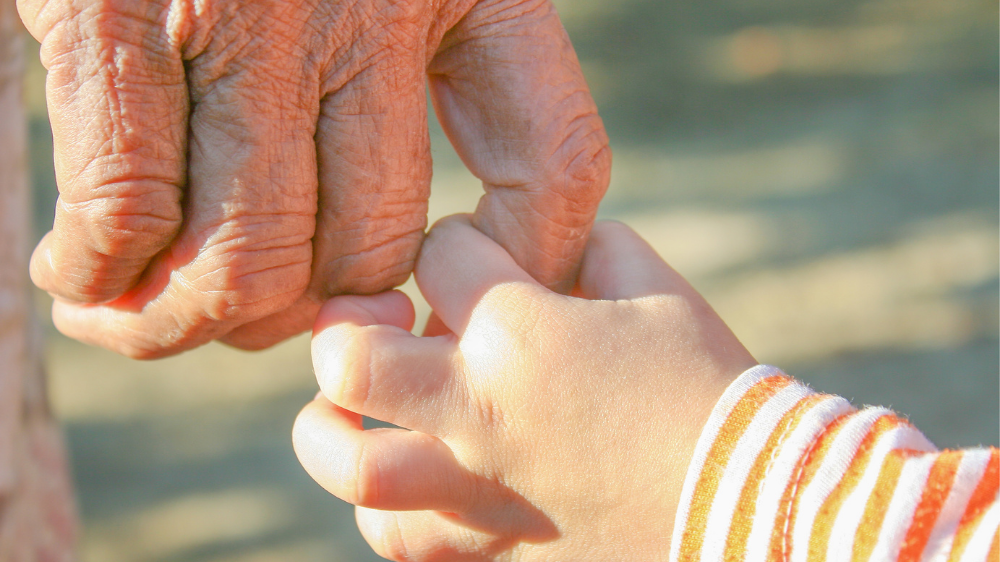Coeliac disease has a hereditary component, which is why you’re more likely to develop coeliac disease if you have family members with the condition. More than 99% of people with coeliac disease have either the HLA-DQ2 or HLA-DQ8 gene (or parts of them), but these genes aren’t rare – in fact, around 30% of the European population carries HLA-DQ2 and around 10% carries HLA-DQ8.
Because only 1% of all New Zealanders with a ‘coeliac gene’ go on to develop coeliac disease, having one doesn’t mean much! The only truly helpful HLA-DQ test is a negative one.
A crash course in HLA-DQ genes
Everyone has HLA-DQ genes. We inherit two copies— one from our mother and one from our father. There are many different types of HLA-DQ genes, but it’s the HLA-DQ2 and HLA-DQ8 variants that raise your risk of having coeliac disease. Because everyone inherits two HLA-DQ genes, you could, for example, end up with no copies of HLA-DQ2 (HLA-DQ2 negative), one copy of HLA-DQ2 (often written as HLA-DQ2 heterozygous) or two copies of HLA-DQ2 (HLA-DQ2 homozygous). In addition, there are at least three different versions of the HLA-DQ2 gene. One, known as HLA-DQ2.5, carries the highest risk for coeliac disease, while HLA-DQ2.2 carries a lower risk. You’ll find more about how the genes can help determine your risk of developing coeliac disease below.
Getting tested
Your GP can order a blood test to find out whether you carry these ‘coeliac genes’.
You don’t need to be eating gluten
Unlike the antibody blood test and small bowel biopsy, the gene test can be done while you’re on a gluten-free diet.
Already a diagnosed coeliac?
If you’ve already been diagnosed with coeliac disease, there’s no benefit to having the genetic test, unless you’re questioning your diagnosis.
When to get tested
Using genetic testing to rule out coeliac disease is useful if you or your children:
- have gone gluten free without being tested for coeliac disease and feel that a gluten challenge would be too difficult
- are in the high-risk group for developing coeliac disease, i.e. you have a first-degree relative with coeliac disease or another condition such as Down syndrome or type 1 diabetes
- have received an uncertain diagnosis of coeliac disease, e.g. a positive blood antibody test but a negative intestinal biopsy (or vice versa)2.
In these situations, a negative genetic test means that coeliac disease can effectively be ruled out. This means that routine monitoring or a gluten challenge is probably not needed (check with your GP or specialist first). Other avenues can then be explored if your symptoms continue.
What it means if you do have the coeliac gene(s)
As mentioned, the HLA-DQ2 and HLA-DQ8 genes are very common, but only a few people with these genes will develop coeliac disease. Given this, having a positive gene test doesn’t mean much — certainly not that you have or will ever develop coeliac disease.
What it means if you don’t have the coeliac gene(s)
This is where the testing is useful. If you don’t carry either of the ‘coeliac genes’, you have less than a 1% chance of ever developing coeliac disease. In this case, it’s so unlikely that you’ll develop the condition, you can effectively rule it out.
It’s interesting to note that only around 15% of people who have parents, a child or siblings with coeliac disease will test negative for the DQ2 or DQ8 genes. However, around 50% of children with Down syndrome will have a negative result for the ‘coeliac genes’, making testing more worthwhile. The likelihood of a negative result is unknown for people with Turner and Williams syndromes, thyroid disease and other at-risk conditions1.
How genes can determine your level of risk
If you have a positive genetic test and the lab provides enough detailed information, it’s possible to determine your relative risk for developing coeliac disease. It’s a little complicated, but here’s a basic summary1:
- Two copies of DQ 2.5 presents the highest risk
- One copy of DQ2.5 presents a high risk
- The presence of DQ8 presents a moderate risk
- The presence of DQ2.2 presents the lowest risk
- Your risk is also determined by the rate of coeliac disease in any at-risk group you may belong to
- There are other genes not in the HLA system that may be linked to coeliac disease development. More research is needed to improve our understanding in this area.
Need personalised nutrition advice?
Elly McKenzie is a New Zealand-based nutritionist specialising in practical, evidence-based support for gut health, coeliac disease, irritable bowel syndrome, food allergies/intolerances, and general nutrition (including healthy eating, high cholesterol/blood pressure and pre-diabetes).
Consultations are available in person at her Mount Maunganui clinic (Tauranga) or across Aotearoa via secure Telehealth. Book a consultation or get in touch to learn more.
References:
1Coeliac UK. Read more here.
2Starship Hospital NZ. Read more here .
Taylor AK, Lebwohl B, Snyder CL, et al. Celiac Disease. 2008 Jul 3 [Updated 2019 Jan 31]. In: Adam MP, Ardinger HH, Pagon RA, et al., editors. GeneReviews® [Internet]. Seattle (WA): University of Washington, Seattle; 1993-2020. Available here.
Taylor AK, Lebwohl B, & Snyder CL. Celiac Disease. GeneReviews. September 17, 2015. Available here.
Coeliac Australia. Read more here.
https://rarediseases.info.nih.gov/diseases/11998/celiac-disease/cases/43805#7269


1 thought on “The coeliac genes”
Comments are closed.